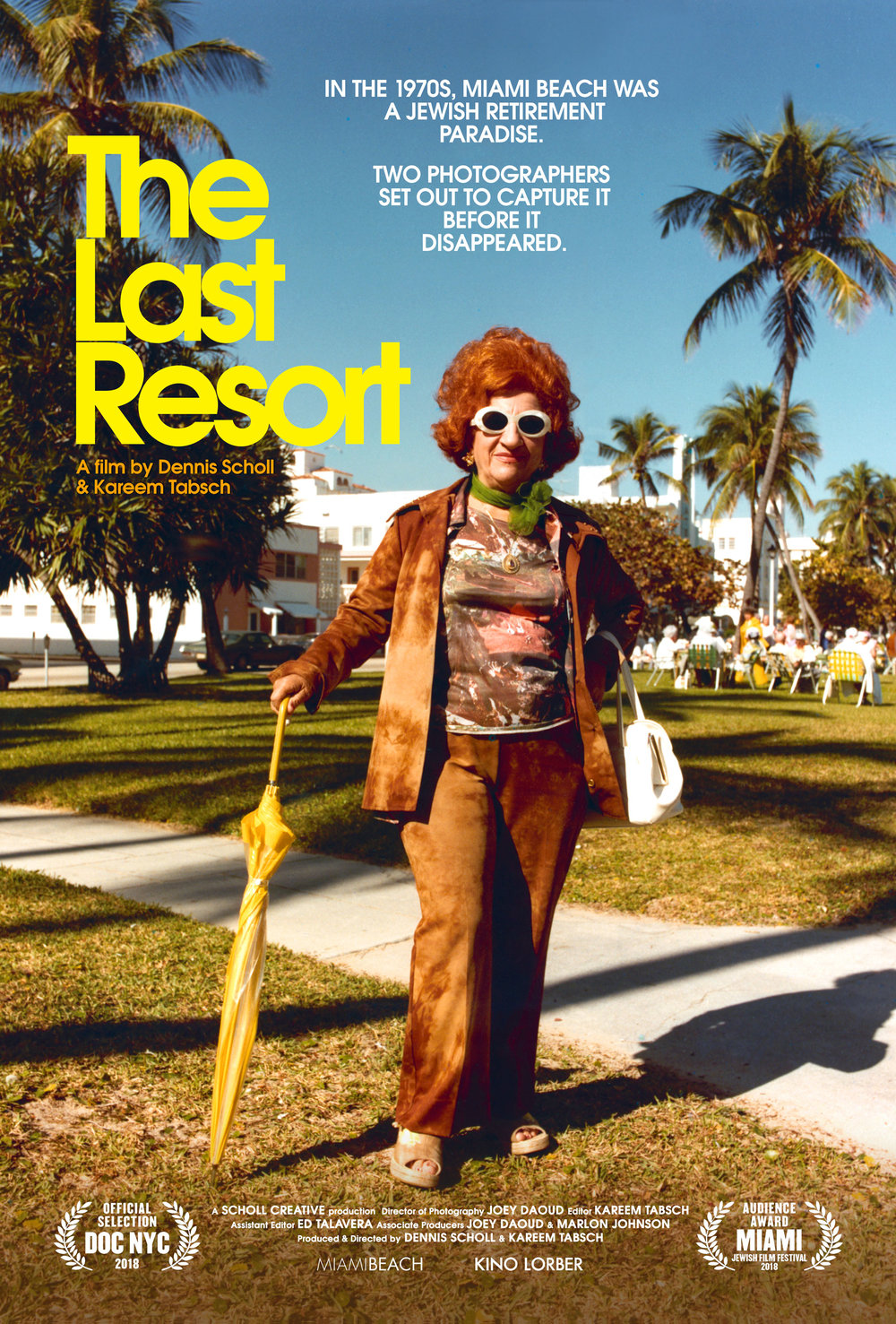By Hans Morgenstern
The Last Resort Distribution Deal Is “a Different Level” for Miami Filmmakers
Before winning awards and audience’s eyeballs, a movie needs connections to movie theaters via a distributor. It’s really the ultimate goal for an independent filmmaker.
The Sundance Film Festival is often thought of as the gateway to such success. But Miami-based collaborative documentary filmmakers Dennis Scholl and Kareem Tabsch found global distribution for their new movie, The Last Resort, right in their own backyard.
Scholl, who is also ArtCenter/South Florida’s president and CEO, spoke via phone while driving to this year’s Sundance. “We chose to put the film into the Miami Jewish Film Festival as our world premiere with the idea that if the film was well received, there were very wonderful indie distributors out there that paid very close attention to that festival, and obviously it worked out because we won the festival,” says Scholl noting the film’s Audience Award in 2018.
The movie captures a period in Miami Beach when the city became a mecca for New York retirees, especially Jews, to settle down for their final years. Two young local photographers, Andy Sweet and Gary Monroe, took to documenting this elder generations’ way of life in the area. The mixture of insight into the artists’ differing approach to the subjects and the vivid representation of the lives Sweet and Monroe had captured made for a multi-layered documentary that had more than one distributor interested. “We had three or four offers for distribution,” reveals Scholl, “and we chose Kino Lorber because they are a long-standing indie distributor that doesn’t do just Jewish film.”
Tabsch, who also co-owns the two O Cinema movie theaters in Miami, knows it’s a privilege to be picked up by such an experienced and respected movie distributor. “I like to say we’re in good company,” he says. “This year they picked up the new Jean Luc Godard [The Image Book], they distributed the Oscar nominee [Of Fathers and Sons] … Kino is probably the most exciting because they really do have some of the finest taste in the business, and I’ve long been following them, long been working with them as an exhibitor. Anytime a film from Kino Lorber comes across my desk it gets extra special attention because I know they are passionate about what they pick up.”
Scholl has experience producing and directing many local films and recognizes the deal is a new achievement for any movie coming out of Miami. “It’s a different level for what’s been happening in our community,” he adds. “Films by 305 filmmakers about 305 subjects for a 305 audience but that can still play on a national and international level.”
Just because they have achieved distribution, doesn’t mean the work has stopped for the filmmakers. They work with Kino Lorber with marketing and publicity, from the poster design to the movie’s trailer. Plus, both are out making appearances and doing interviews. “Life is just busier,” says Tabsch. “Making the movie is a huge, big hurdle, but the work doesn’t really stop there. It only gets more intense because once you’ve made the movie you want people to see the movie, so the real work is in getting it out there.”
In December, the pair recently went to New York City for The Last Resort’s theatrical premiere at The Quad Cinema. The movie was so successful the theater decided to add two additional weeks to what was to be a week-long run. In South Florida, seven theaters will play the film from Miami-Dade to Palm Beach County. The film also already had an opening in Toronto, and more cities continue to add the film every week, including L.A., notes Scholl. “I think the film probably struck a beautiful chord in a number of communities, and I think we’re bearing the fruit of striking that chord,” he adds.
Tabsch could have asked for an exclusive run at O Cinema, but decided against it. “This is a film that we want to get as far and wide as possible, and it’s really important to think about where you can play this film and what community you can connect most with, so obviously we’re thrilled to be booked at Coral Gables Art Cinema and obviously O Cinema Miami Beach … Miami Beach is the home of the photographers and where the community took place and also one of the historically largest Jewish communities in the area, certainly originally, and Coral Gables as well makes perfect sense.”
As the film starts playing in theaters, each also have other projects in various stages of development. In March, Scholl will appear at the Miami Film Festival for the world premiere of Singular, a documentary about Grammy Award-winning Miami-based jazz singer Cecile Mclorin Salvant. His documentary about the expressionist painter Clyfford Still called Life Line was also recently picked up by Kino Lorber. Tabsch is eager to announce his next collaborative documentary with another filmmaker but is sworn to secrecy until a trade announcement. Finally, both Scholl and Tabsch have plans to work together again. In fact, they are ready to announce their next subject, focusing on another local artist: photographer/filmmaker Bunny Yeager. Scholl reveals the working title is Bunny Yeager: The Reluctant Feminist.
Like Sweet and Monroe, Tabsch says Yeager has never gotten the attention and acclaim she deserved. “I think Bunny Yeager is another artist like that, who was hugely influential and not enough people know her name or her story or how groundbreaking her work was,” he says. “The biggest deal is celebrating the life of an artist.”



